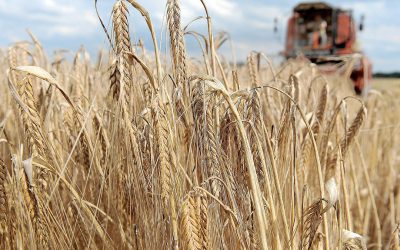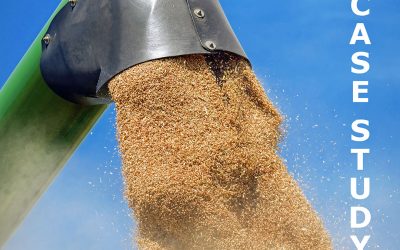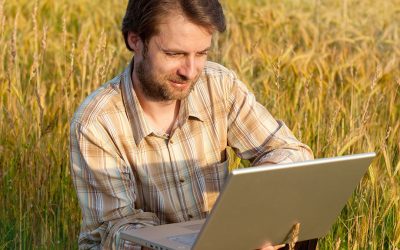More investments in AgriFood Startups

AgriFood Tech startups, those innovating all the way from farm-to-fork, raised $?16.9 billion in 2018. This is a 43% year-over-year increase.
This is according to the AgFunder AgriFood Tech Investing Report – 2018 that looks at seed funding, followed by series A, B, C and D funding rounds.
Agriculture still least digitised
Agrifood tech is the small but growing segment of the startup and venture capital universe that’s aiming to improve or disrupt the global food and agriculture industry. At the same time, the pace of innovation has not kept up with other industries and today agriculture remains the least digitised of all major industries, according to McKinsey. This means the need for agrifood tech innovation is greater than ever. This creates many opportunities for entrepreneurs and technologists to disrupt the industry and create new efficiencies at various points in the supply chain. And this is reflected in more funding over the last years. AgFunder concludes in its report that as the agrifood tech sector develops and matures, a combination of increasing deal activity and larger, later stage deals resulted in growth in certain categories. That agrifood tech startups can raise such large rounds highlights the presence of an increasingly diverse range of investors, including larger, institutional investors that are starting to find investment opportunities in the sector. It also highlights the strength of the proposition of disrupting, or improving, the world’s broken food systems with technology.
Upstream and downstream type of startups
There are many ways to categorise agrifood tech startups highlighting the complexity of the industry. The AgFunder report uses 2 large groups. That is the upstream category including: Ag Biotech, Farm Management SW, Farm Robotics & Equipment, Bioenergy & Biomaterials, Novel Farming, Agribusiness Marketplaces, Midstream, Innovative Food. The downstream category includes: In-store Restaurant & Retail, Online Restaurants, eGrocery, Restaurant Marketplaces, Home & Cooking. Downstream funding grew at a similar rate (43%) but mostly at the later stages as outliers contributed to the growth. Restaurant Marketplaces continued to bring in the most funding in a global phenomenon trigged by consumer demand for convenience and increased choice. Growth in funding for startups operating upstream – from the farm before the retailer – accelerated at its fastest pace on record in 2018 (44%) and dominated the leader boards for Seed (early investment), Series A and Series B stage deals.
Robotic technology and insect farming
Funding for Farm Robotics, Mechanization and Equipment startups jumped 56% as an increasing number of entrepreneurs turned their attention to automation processes on the farm. Some 83 startups closed funding rounds during the year as robotic technology continued to advance across industries. Funding for Novel Farming Systems, including indoor agriculture systems, dropped year-over-year with 54 deals getting 8.6% fewer dollars ($ 596m). There were 17% fewer deals and also only 2 deals over $ 100 million after the $ 200 million record-breaking round for US vertical farm Plenty drove the category in 2017. There’s a funding race occurring in the insect farming space after AgriProtein raised a $ 105m equity and debt round in the largest insect farming deal on record at the time. The UK/South Africa startup raises black soldier flies for livestock feed and is constructing its next generation of farms. During February 2019, however, French mealworm farmer Ynsect raised $ 125m at Series C breaking the record. InnovaFeed and Entomo Farm are 2 more insect farms in the top 20.
Most deals in India and China
There were 11 deals over $ 200m from the Asian countries India and China, compared to 8 from the US. They included India’s Swiggy ($ 1bn), eGrocer Dada—JD Daojia ($ 500m), agribusiness marketplace Meicai ($ 450m), eGrocer MissFresh E-Commerce ($ 450m), restaurant marketplace Dianwoba ($ 450m) and Bigbasket ($ 300m). The US still dominated the funding landscape but China came second, with $ 3.5bn invested across 184 deals. New countries entering the agrifood tech investment space for the first time were Albania, Romania, Serbia and Zambia.
Source: AgFunder











